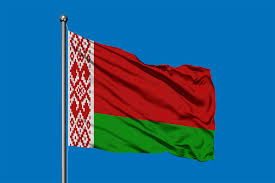Why Lithuania: Main Features for Businesses
Lithuania has emerged as one of Europe’s most attractive business destinations, offering a compelling combination of strategic positioning, competitive advantages, and progressive policies that make it particularly appealing for diverse business sectors:
Strategic EU Gateway Location: Lithuania’s position in Central Europe provides unparalleled access to over 500 million EU consumers. The country serves as an ideal bridge between Western and Eastern European markets, with excellent infrastructure including Europe’s fastest internet connections and modern transport networks. This positioning is particularly valuable for businesses targeting the broader European market.
Competitive Corporate Tax Rates: Lithuania operates one of the most competitive corporate tax structures in the EU. The standard corporate income tax rate is 16% (increased from 15% in 2025), rising to 17% in 2026. However, the true advantage lies in the special regimes: small companies with fewer than 10 employees or annual revenue under €300,000 can benefit from 0% tax in the first two years (extended from one year in 2026) and 6% thereafter.
Exceptional Business Environment Rankings: Lithuania consistently ranks among the world’s top business environments:
- 11th globally in the World Bank’s Ease of Doing Business index
- 2nd place in the Global Entrepreneurship Index (2024-2025)
- 35th globally in the Global Innovation Index for the second consecutive year
- 1st globally in digital skills availability and unicorn value relative to economy size
Thriving Technology Ecosystem: Lithuania excels in multiple strategic sectors, with a particular focus on:
- FinTech: Ranked among the top 4 best global locations for FinTech, attracting major players like Revolut
- Startups: The startup ecosystem ranks 19th globally and 12th in Europe, with over 1,000 startups providing jobs for more than 18,700 people
- Innovation-driven Industries: Leading in biotechnology, laser technology, ICT (accounting for 10% of GDP), and digital services
Highly Skilled Workforce: The country offers one of the world’s most educated workforces, with the highest proportion of women with higher education globally. Approximately two-thirds of the workforce has completed secondary, technical, or vocational education, creating an ideal environment for knowledge-intensive businesses.
Core Legal Forms of Companies
Lithuania offers several corporate structures, with the Private Limited Liability Company (UAB – Uždaroji Akcinė Bendrovė) being the most popular choice, representing approximately 90% of all company registrations:
Private Limited Liability Company (UAB)
- Minimum Capital: €2,500 (some sources indicate as low as €1,000 for basic setups)
- Minimum Founders: One founder (individual or legal entity)
- Liability: Limited to capital contribution
- Management: One or more directors (no residency requirement)
- Foreign Ownership: 100% foreign ownership permitted
- Best for: Small to medium-sized enterprises, foreign investment, and technology companies
Public Limited Liability Company (AB – Akcinė Bendrovė)
- Minimum Capital: €25,000 (25% must be paid upon registration)
- Structure: More complex governance with board of directors and supervisory board
- Share Transfer: More flexible than UAB
- Best for: Larger businesses planning public trading
Small Partnership (MB – Majors Bendrija)
- Minimum Capital: €1 (most popular form as of 2021)
- Tax Benefits: Simplified tax regime for small businesses
- Best for: Very small enterprises and individual entrepreneurs
Key Points to Remember:
- No residency requirements for founders or directors
- Directors do not need Lithuanian nationality
- Employment contract required between company and director
- Company registration can be completed remotely through Power of Attorney
- Notarization required for founding documents
Taxation System and Optimization Opportunities
Corporate Income Tax (CIT)
Lithuania’s corporate tax system provides significant opportunities for optimization:
Standard Rates and Recent Changes:
- 2025: 16% (increased from 15%)
- 2026: 17% (further increase for defense funding)
- Small companies (employees <10 OR revenue <€300,000): 6% (increased from 5%)
- New companies: 0% for first two years (extended from one year starting 2026)
Special Sectors:
- Credit institutions: 21% (16% + 5% surcharge for profits exceeding €2 million)
- R&D commercialization: 5% on profits from patented inventions and software
Tax Optimization Opportunities:
R&D Super-Deduction: Companies can claim 300% deduction on eligible R&D expenses, including employment costs, business travel, subcontracting, materials, and overhead costs. Additionally, R&D assets can be depreciated within two years instead of the normal 3-8 years.
Investment Project Incentive: Companies can reduce taxable profits by up to 100% of costs for acquiring new fixed assets that increase production, service, or sales capacity (available for investments during 2009-2023).
Free Economic Zones (FEZ): Companies in Lithuania’s six FEZs enjoy:
- 100% corporate income tax exemption for 10 years
- 50% reduction for following 6 years
- Minimum investment: €1 million (or €100,000 for service companies with 20+ employees)
Loss Carryforward: Tax losses can be carried forward indefinitely, providing significant flexibility for growing businesses.
Large Project Incentive: 20-year corporate income tax exemption for projects creating 150+ new jobs (200+ in Vilnius) with significant investment commitments.
Other Key Taxes
VAT (PVM – Pridėtinės Vertės Mokestis):
- Standard rate: 21%
- Reduced rates: 9% (books, transport, accommodation), 5% (medicines, newspapers)
- Registration threshold: €45,000 (proposed to increase to €60,000 in 2026, then €70,000 in 2027, and €85,000 in 2028)
- EU distance selling threshold: €10,000
Social Security Contributions:
- Employer rate: 1.77% (permanent employees), 2.49% (fixed-term employees)
- Employee rate: 19.5% (including 6.98% health insurance, 8.72% pension)
- Additional employer contributions: 0.16% guarantee fund, 0.16% long-term employment fund
Withholding Tax:
- Dividends: 16% (from 2025, increased from 15%)
- Interest: 10% (0% for EEA entities under certain conditions)
- Royalties: 10% (0% for related parties under EC directive)
- Treaty reductions often apply
Ease of Doing Business and Government Policies
Business Environment Rankings
Lithuania has achieved exceptional international recognition for its business-friendly environment:
- 11th globally in World Bank’s Ease of Doing Business (highest Baltic position)
- 2nd globally in Global Entrepreneurship Index (2024-2025)
- 35th globally in Global Innovation Index
- 4th in EU (behind Denmark, UK, Sweden) in business conditions
Government Business Support
The Lithuanian government maintains a highly proactive approach to business development through comprehensive strategies:
Priority Sectors with Strong Government Support:
- Technology and Innovation: Biotechnology, pharmaceuticals, laser technologies, electronics, ICT
- FinTech and Financial Services: Lithuania ranks among top 4 global FinTech locations
- Startup Ecosystem: Dedicated support through various agencies and programs
- Green Economy: Renewable energy, environmental technologies, sustainable innovation
- Advanced Manufacturing: Automotive components, electronics, precision machinery
Less Favorable or Regulated Sectors:
- Traditional banking (stricter capital requirements and supervision)
- Defense and dual-use items (enhanced scrutiny for foreign investment)
- Large-scale energy infrastructure (subject to strategic asset controls)
Key Government Agencies
Ministry of Economy and Innovation: Handles business environment improvement, investment attraction, export promotion, innovation support, and EU structural funds administration.
Invest Lithuania: One-stop investment promotion agency providing free consultancy services for export-oriented investors.
Innovation Agency: Supports R&D, innovation projects, and startup ecosystem development.
Company Formation Process and Requirements
Registration Process
Lithuania offers one of Europe’s most streamlined company formation processes:
- Company Name Reservation: Optional 6-month reservation for €16
- Legal Address: Mandatory Lithuanian business address (rental services available)
- Share Capital Deposit: Minimum €2,500 in accumulative bank account
- Document Preparation: Articles of Association, founding agreement
- Notarization: Required for founding documents (can be done remotely via Power of Attorney)
- Registration: Submit to Register of Legal Entities
- Bank Account Conversion: Convert accumulative to settlement account
Timeline and Costs
- Registration Time: 1-3 business days after document submission
- Total Timeline: 3-7 days for complete setup
- Basic Costs:
- State registration fee: €57.4
- Notary fees: €102-€338
- Professional services: €750-€2,000
Residency and Director Requirements
- Founder Residency: Not required for company formation
- Director Nationality: No restrictions on director nationality
- Physical Presence: Remote incorporation possible through Power of Attorney
- Employment Contract: Required between company and director
- Business Residence Permit: Available for company founders investing minimum €28,000
Shareholding Structure
- Foreign Ownership: 100% foreign ownership permitted without restrictions
- Minimum Shareholders: One founder minimum for UAB
- Share Transfer: Relatively straightforward process for UAB
- Share Capital Usage: Can be used immediately after incorporation
Available Grants and Funding Programs
National Funding Programs
Entrepreneurship Promotion Fund (EPF): Microloans up to €25,000 with government guarantees, specifically targeting young entrepreneurs (under 29), unemployed, disabled, and older people (50+). The program includes free training, advice, and additional financial support including interest rate subsidies.
Lithuanian Public Employment Service Grants:
- Targeted subsidy: Up to €19,000 for youth entrepreneurs and disabled individuals, with 50 hours of training
- Business support grant: Up to €70 monthly for business licenses, social security, and insurance
- Self-employment support: Covers one-time establishment costs and equipment
INVEGA Programs: Lithuania’s national development institution provides:
- Soft loans for energy storage systems (€100 million program budget)
- Open Credit Fund for SME operations
- Various financial instruments and loan guarantees
EU and International Funding
EU Funds Investment Programme 2021-2027: Almost €8 billion budget covering European Regional Development Fund, European Social Fund, Cohesion Fund, and Just Transition Fund.
EIB Group Financing: €449 million provided in 2024 alone, supporting 1,200 SMEs and sustaining 19,000 jobs. The EIB Group has averaged €562 million annually in Lithuania over the past five years.
InvestEU Programme: New financial instruments supporting sustainable infrastructure, research and innovation, SMEs, and social investment with €372 billion mobilization target by 2027.
Innovation and R&D Support
Tax Incentives for Innovation:
- Triple deduction (300%) for R&D expenses
- Accelerated depreciation for R&D assets (2-year write-off)
- 5% corporate tax rate on commercialization of patented inventions
Enterprise Lithuania Startup Programs:
- Startup Fair and international showcases
- “3-Stop Road Show” to Stockholm, London, Tel Aviv
- Acceleration events and Silicon Valley connections
Innovation Voucher Scheme: Access to high-quality advisory services for businesses developing new technologies.
Sector-Specific Funding
Energy and Sustainability: Various grants for renewable energy, energy storage systems, and green technology development.
EEA Grants: €43.02 million across multiple programs including Business Development, Innovation and SMEs (€14.40M), Environment and Energy (€12.00M), Culture (€7.00M).
Governance and Compliance Requirements
Financial Reporting Standards
Lithuania offers flexibility in financial reporting standards:
Reporting Options:
- Lithuanian Business Accounting Standards (LBAS): Suitable for SMEs, based on IFRS but adapted for local requirements
- EU-endorsed IFRS: Mandatory for Public Interest Entities (PIEs) including listed companies, banks, insurance companies, and state enterprises
Annual Financial Statements Must Include:
- Balance Sheet (Statement of Financial Position)
- Profit and Loss Statement
- Cash Flow Statement
- Statement of Changes in Equity
- Explanatory Notes
- Annual report (for certain entities)
Audit Requirements
Mandatory Audit applies to companies meeting at least two of the following criteria on the last day of the financial year:
- Net sales revenue: €3.5 million
- Total assets: €1.8 million
- Average employees: 50 persons
Always Required for:
- State and municipal enterprises
- Public enterprises (AB)
- Public limited companies
- Private companies with state/municipal shareholders
Audit Timeline: Financial statements must be submitted within 4 months after year-end, with additional 30 days for registry submission.
ESG and Sustainability Compliance
Current ESG Requirements: Large companies, public interest entities, and state/municipal companies must prepare annual non-financial performance analysis covering environmental protection, personnel, and social impact.
Upcoming CSRD Implementation: The Corporate Sustainability Reporting Directive will require more detailed ESG disclosures, with implementation phased based on company size:
- Large public interest entities: From 2025
- Large companies: From 2026
- Listed SMEs: From 2027
EU Taxonomy Compliance: Companies must align with EU environmental taxonomy regulations for sustainable activities.
Corporate Governance
Listed Company Requirements:
- Comply with NASDAQ Vilnius Corporate Governance Code (on “comply or explain” basis)
- Board composition: At least one-third independent directors for single-tier boards
- Related party transaction approval and disclosure requirements
- Annual governance compliance reporting
State-Owned Enterprise Governance: Monitored by the Governance Coordination Centre with public reporting on compliance with OECD guidelines.
Internal Controls: Internal audit mandatory for public sector entities and companies exceeding certain thresholds.
Conclusion
Lithuania presents an exceptionally attractive corporate income tax environment that positions it as one of Europe’s most business-friendly jurisdictions. The combination of competitive tax rates, strategic EU location, advanced digital infrastructure, and comprehensive government support creates compelling opportunities for businesses across multiple sectors.
Key Advantages:
- Highly competitive corporate tax rates (16% standard, 6% for small companies, 0% for new companies)
- Exceptional ease of doing business (11th globally, 2nd in Global Entrepreneurship Index)
- 100% foreign ownership with remote incorporation capabilities
- Comprehensive R&D incentives including 300% deduction and accelerated depreciation
- Access to substantial EU funding (€8 billion programme for 2021-2027)
- World-class digital infrastructure and highly skilled workforce
Strategic Considerations:
- Moderate social security contributions (1.77-2.49% employer, 19.5% employee)
- Evolving ESG compliance requirements, particularly CSRD implementation
- Need for ongoing professional support for tax optimization and regulatory compliance
- Recent tax rate increases (defense funding) may continue
Optimal Business Types for Lithuania:
- Technology and Innovation Companies: Exceptional R&D incentives and startup ecosystem
- FinTech and Financial Services: Top-4 global ranking and regulatory expertise
- Manufacturing and Export-Oriented Businesses: EU market access and competitive costs
- Green Technology and Sustainability: Strong government support and EU funding access
For entrepreneurs considering European expansion, Lithuania offers a unique combination of fiscal efficiency, regulatory stability, innovation support, and market access that positions it as the continent’s premier destination for growth-oriented businesses. The country’s commitment to digital transformation, sustainability, and international competitiveness—evidenced by its top-tier global rankings—makes it particularly attractive for technology companies and innovative enterprises seeking to establish a strategic foothold in the European Union.
The government’s proactive approach to business support, demonstrated through comprehensive grant programs, investment incentives, and specialized agencies like Invest Lithuania and the Innovation Agency, creates an environment where businesses can not only establish operations efficiently but also access the resources necessary for sustained growth. This supportive ecosystem, combined with Lithuania’s strategic positioning and advanced infrastructure, provides an ideal foundation for businesses seeking both immediate operational advantages and long-term expansion potential in the European market.


